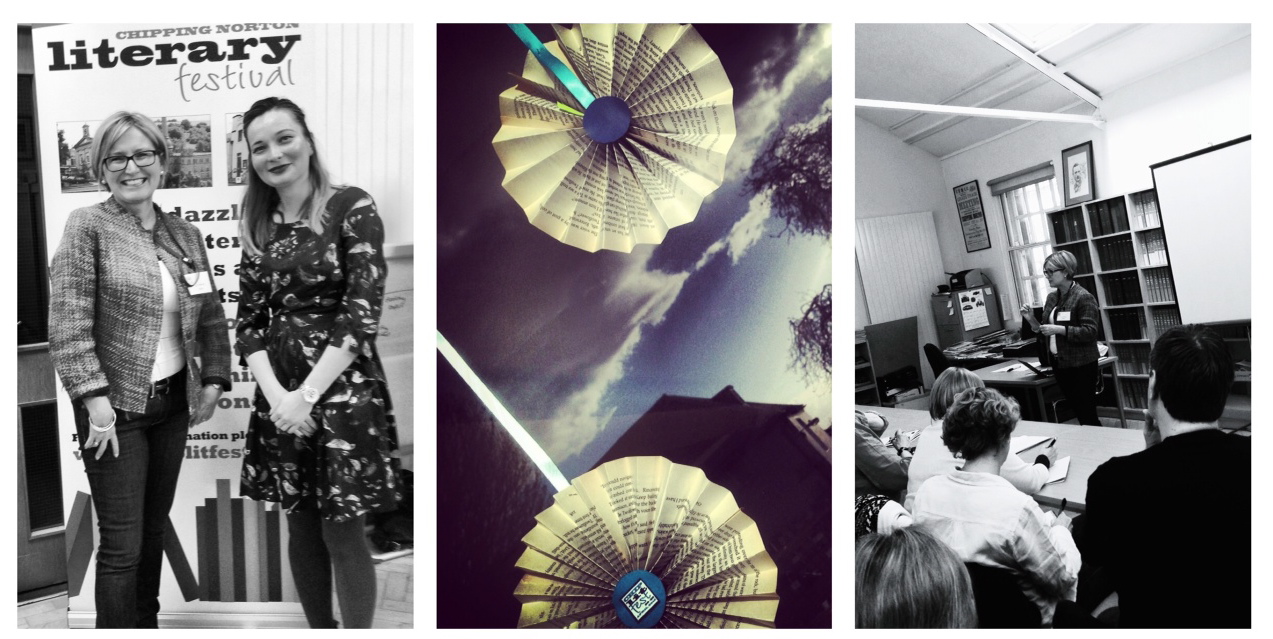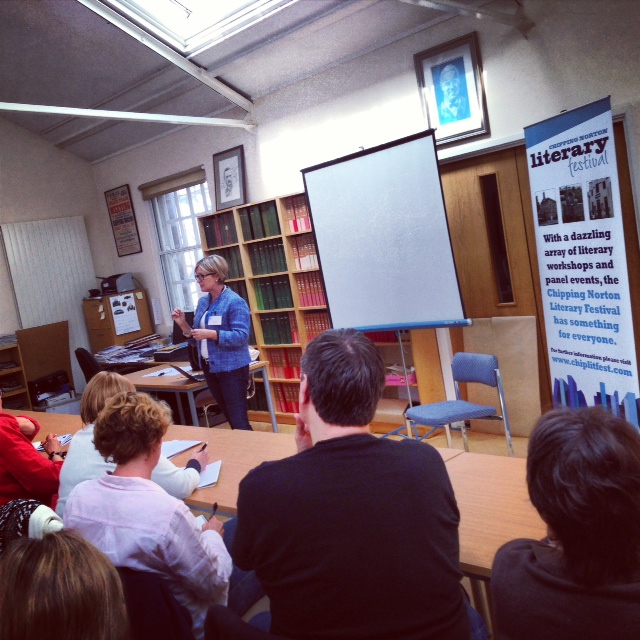Social media for writers
Should writers be participating in social media? While some people are still questioning whether they should, the rest of the world has fallen under social media’s spell. If you were to ask readers how they discovered new titles, what do you think is a more common answer: going to the library, or browsing the Internet? The answer to this alone should have you thinking about starting a Twitter or Facebook account.
What better way of finding out more than by hearing the opinion of a writer who has used, tested, and learned, the true worth of social media.
Do writers need to participate in social media?
Last weekend I had the pleasure of meeting Liz Fenwick, the author of the novel The Cornish House, at the Chipping Norton Literary festival, where she was giving a workshop to a crowd of established and upcoming writers about the use of social media.
Liz started her journey with social media a few years ago: “I used social media before I was published, but now I’m using networking tools to keep me published”.
According to Liz, before you jump into social media you need to ask yourself a few fundamental questions:
- Who are you and what do you wish to portray?
- Where are you in your journey?
- What are you willing to share?
- How much are you willing to open?
Establishing answers to these questions is important, for when you start using social media and begin experiencing different situations, they will become your guidance. When you begin sharing and giving your own opinions, anyone will be able to read your messages. As Liz pointed out “If it’s there, you can’t do much (about it).”
A prime example of why it is important to be mindful of your behaviour on social media is the story of Paris Brown, who got into trouble due to Twitter statements written some years earlier. These tweets were offensive and resulted in her losing her job and knocking her reputation.
This is why it is so crucial to start by thinking about how you want to portray yourself. If you’re happy to be controversial, you had better be prepared for the consequences.

Who are your readers?
As with any industry, it is important to look into your audience. Liz suggested answering the following questions:
- Who are your readers?
- Who are your potential readers?
- How are they using social media?
Looking at social metrics (e.g. your Facebook page metrics) and user behaviours may help you understand how your reading market is socially engaged. Liz noticed a difference in teenager social media usage based on location; UK youngsters tend to embrace Facebook, while in the Middle East, teenagers are more active on Twitter.
From Liz’s experience, Twitter is best for quick conversations. She had these golden rules, which have helped her grow her own presence online:
- Share and re-tweet interesting links and photos
- Don’t overpower your readers with too many ‘buy my book’ tweets
- Don’t be afraid to show your professional personality
- Follow all of your followers, unless they don’t have a profile image or description
- And the most important one: “the more you engage with your readers, the more they will engage with you”
For Facebook, Liz found that it was worthwhile having a separate personal account and author page. It might seem very tempting to use your already established profile, with your various friends and family already connected, but by doing so you are opening your personal life to the public, allowing strangers to gain insights into the private life of you and your family. By using a separate author page you can avoid privacy problems and make promoting yourself easier.
Liz suggests:
- You can still like or share updates on your author page from your personal profiel
- Having a business page allows you to tag others in your posts, allowing you to be more easily found
- Adding a location to photos may help others track your events or persuade them to also become a part of them
- It is easier to engage with others with a business page, and you can monitor the performance of posts and other stats with the Facebook page metrics.
So the question is: is it worth it?
If you were to ask Liz whether she could be 100% sure she has sold a book as a result of using social media, she would say no. However, she can assure you that using social media has allowed her to connect with new readers not only here in the UK, but from all around the world.
Can you put a price on a tweet? In Liz’s case, yes. If someone offers you coverage in a magazine or on radio, just from a 140 character message, then social media quickly reveals itself as one of the cheapest and most effective forms of PR and brand building.
I will end this post with 10 other big tips from Liz.
10 more of Liz’s biggest tips:
- Jump into social media as a reader first and really explore how the networks work
- Always try to stay ahead and explore new networks which can help you connect with your readers. Liz recently jumped into Pinterest after being inspired by a board from a Singaporean writer and now she simply can’t get enough of pinning!
- Introduce interesting competitions and giveaways
- Build up traffic to your website by adding a blog
- Allow your readers to have their own voice by arranging guest blogging opportunities
- Think of yourself as brand. Don’t miss out on possibilities out there in the online world.
- Participate in conversations happening on GoodReads, which can allow you to engage with foreign readers. Don’t be afraid to leave your reviews as well, as by this you may find new followers. You can use this website for giveaways and for gaining book recommendations.
- Create an Amazon profiles and translated biographies and links to your website and social networks for different countries.
- Use imagery as much as possible.
- If you are looking to establish stronger connections with journalists, use LinkedIn.
Thank you again to Liz for an interesting talk!
By Kasia Piekut

About markmaking*
markmaking*